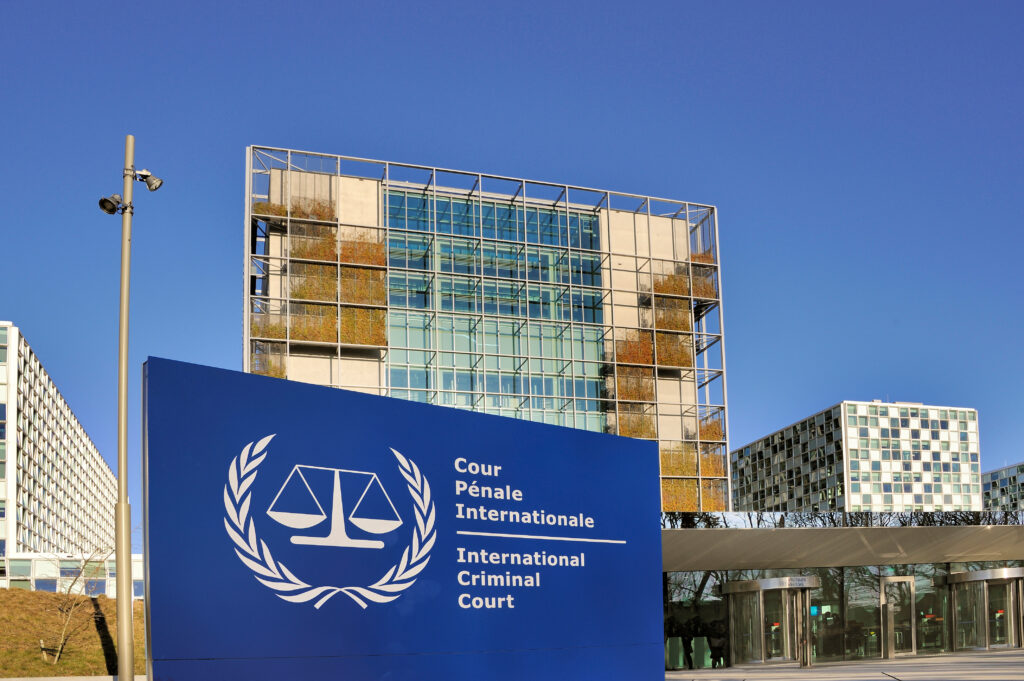IN THE MEDIA
Politicised decision-making a threat to hopes for lasting peace
June 6, 2024 | Tzvi Fleischer

The Mercury – 6 June 2024
On May 20, the International Criminal Court’s (ICC) chief prosecutor, Karim Khan, filed applications for arrest warrants for Hamas terrorist leaders Yahya Sinwar, Mohammed Deif and Ismail Haniyeh, on a variety of charges, including torture, rape and murder. These changes resulted from the army of Hamas terrorists that invaded Israel on October 7, fired thousands of missiles at Israeli towns, murdered more than 1,100 Israelis and abducted over 250 more.
Naturally, as any country subject to such blatant aggression and war crimes from a neighbouring territory would have done, Israel responded with a campaign to destroy Hamas, retrieve the hostages and ensure that Hamas-run Gaza never poses a similar threat to Israel again.
Yet Khan also indicted Israel’s PM Benjamin Netanyahu and Defence Minister Yoav Gallant, on a litany of dubious charges – including intentionally starving civilians and targeting them – based on Israel’s military response.
Khan essentially drew a moral equivalence between genocidal terrorists responsible for a sadistic attack against innocents and a liberal democracy defending its people against this savage violence, as any nation would.
The ICC ignored Israel’s extensive efforts to protect ordinary Gazans – actions that go beyond what any country in history has ever done in a similar situation, according to top military experts like John Spencer, the Chair of Urban Warfare Studies at the Modern War Institute at West Point and others. This includes facilitating over 500,000 tonnes of humanitarian aid into Gaza as well as a massive campaign to minimise harm using millions of leaflets, text messages and phone calls to inform Gazans of safe zones.
There have still been serious human costs because Hamas effectively turned all of Gaza’s civilians into human shields by lacing its network of tunnels, weapons depots and missile launchers through all residential neighbourhoods, as well as schools, mosques and hospitals.
Yet, as former British Attorney-General Sir Michael Ellis recently noted, “the ratio of civilians to combatants killed in Gaza is close to 1:1 – almost unprecedented in urban warfare… and lower than US and British operations in Afghanistan and Iraq.”
However, relying on dubious statements from UN officials about the situation in Gaza, the ICC ignored all this – and in doing so violated its founding charter, the Rome Statute.
First, the ICC has no jurisdiction over Israel because Israel, like the US, China and numerous other countries, never signed up to be part of the Court. The ICC circumvents this obvious problem by claiming that the “State of Palestine” agreed to join the Court – even though “Palestine” does not yet fulfil the criteria for statehood under international law. The Court says it can therefore charge Israelis for violating its laws on the territory of “Palestine”.
Second, the Court ignored its own charter’s rules about “complementarity”, the principle that ICC intervention is to take place only in situations where no credible national legal system exists to deal with violations of international law. For this reason, the ICC has previously never sought warrants against leaders or officials of a genuine democracy with a strong legal system.
Thus, even if the ICC had jurisdiction, complementarity should immediately rule out any action against Israeli leaders because as even ICC Prosecutor Khan himself acknowledged, Israel has a “robust [judicial] system intended to ensure compliance with international humanitarian law.” Indeed, Israel’s judiciary is among the most independent and interventionist in the world, having jailed former prime ministers and presidents. Even the current PM is on trial for corruption charges.
The only possible explanation for the ICC launching its first-ever charges against Israel in the current war – despite violating its own core rules – is the politicisation of its decision-making. Such politicisation is something that has afflicted the UN-dominated international system since the 1970s, when the Soviet bloc, working with the Muslim-majority states, created a bureaucracy in the UN solely dedicated to promoting the Palestinian cause and demonising Israel. That bureaucracy, and the NGOs that work closely with it, are the reason why more UN resolutions are passed each year denouncing Israel than all other countries in the world combined.
The politicised, exaggerated and false claims from this bureaucracy also explains two recent decisions by the UN’s other major court, the International Court of Justice (ICJ). That Court has allowed South Africa to abuse the Genocide Convention and try to use the Court to effectively hand victory to Hamas, which South Africa openly supports. Rather than rejecting this abuse of process, the ICJ assisted it by issuing ambiguous and widely misinterpreted rulings in January and May that again relied almost wholly on statements made by UN officials as their “evidence”.
The extreme biases of the UN system – including the ICC and the ICJ – need to be called out because they threaten not only any hope for a lasting two-state peace between Israelis and Palestinians, but the viability of a system of international law as a way to provide global peace and security.
Dr Tzvi Fleischer is director of policy and research at the Australia/Israel & Jewish Affairs Council (AIJAC) and has a PhD in International Politics from Monash University.
Tags: Gaza, Hamas, International Criminal Court, Israel





